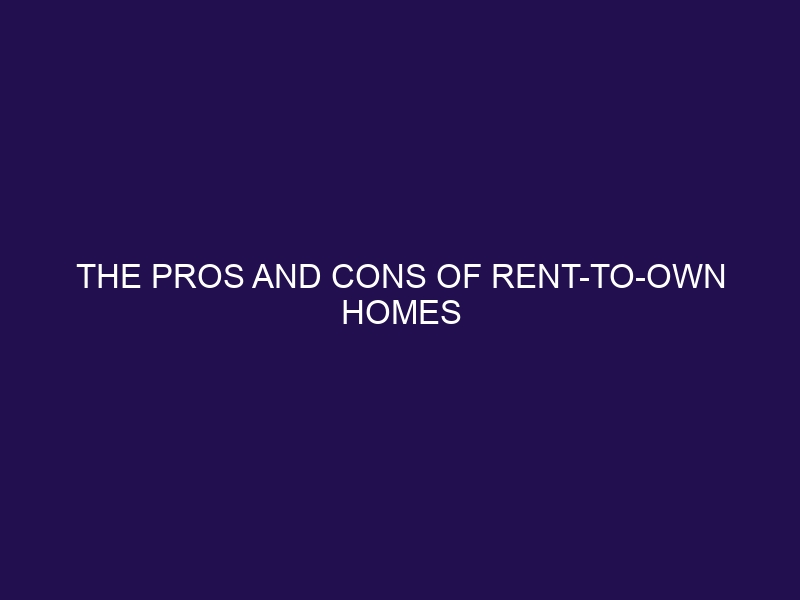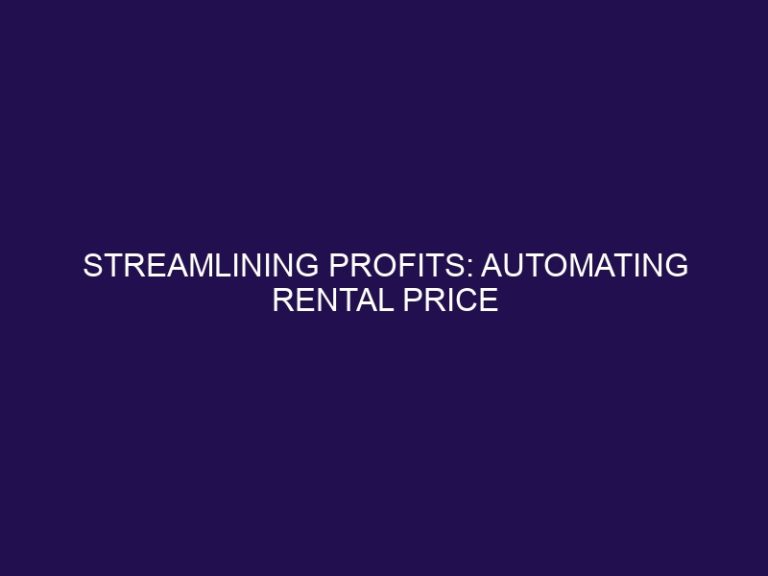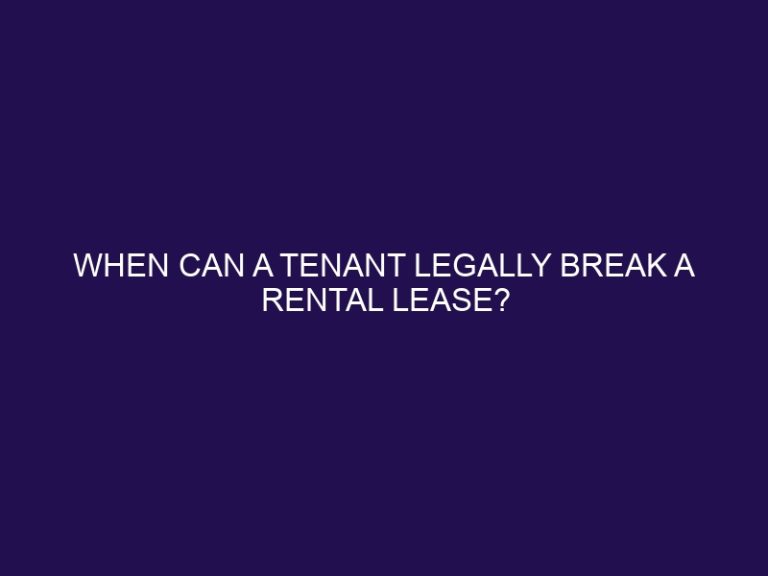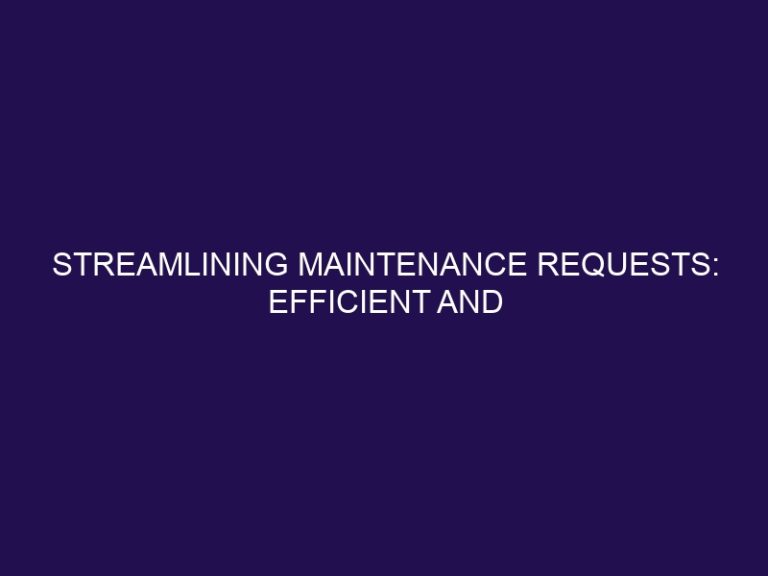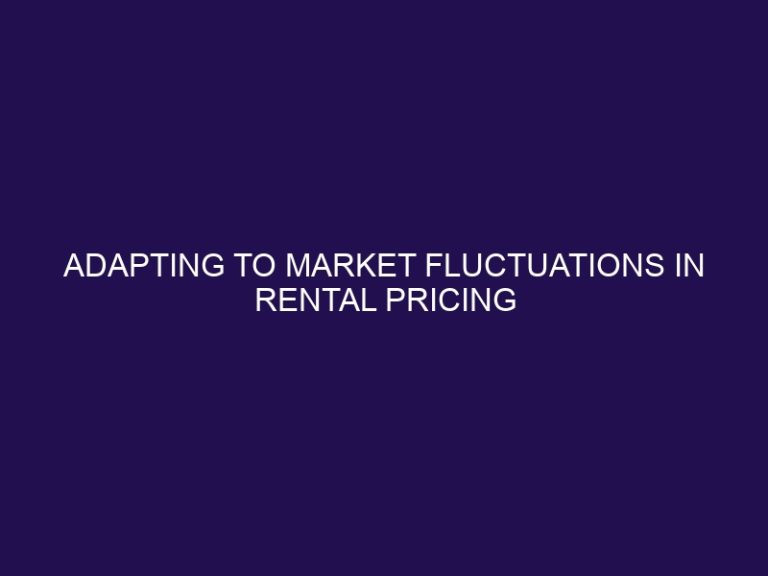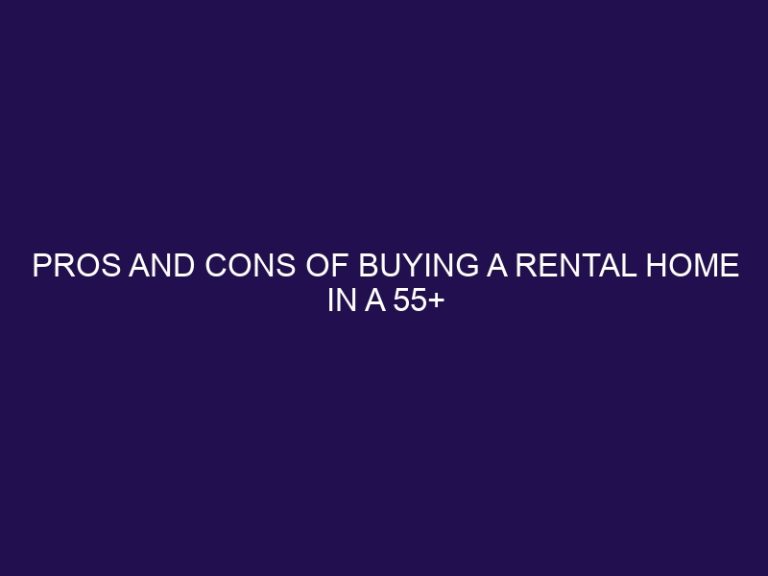The Pros and Cons of Rent-to-Own Homes
Rent-to-own homes, also known as lease-to-own or lease-to-purchase homes, are a type of agreement where a renter has the option to purchase the property they are renting after a certain period. This type of arrangement can be attractive for those looking to become homeowners but may not have the financial means to do so immediately.
The process of rent-to-own works by signing a lease agreement with the option to purchase the home at a later date. A portion of each month’s rent goes towards a down payment for the potential purchase of the property. However, as with any major financial decision, there are pros and cons to consider.
Some of the pros of rent-to-own homes include:
- No Need for a Large Down Payment: Rent-to-own homes do not require a large down payment like traditional home purchases, making it easier for those with limited savings.
- Opportunity for Homeownership: For those who may not qualify for a mortgage currently, rent-to-own provides the opportunity to eventually become a homeowner.
- Time to Improve Credit Score: During the rental period, renters have the opportunity to improve their credit score, making it easier to secure a mortgage in the future.
- Option to Test Out the Neighborhood: Renters can get a feel for the neighborhood and community before committing to purchasing the home.
However, there are also cons to rent-to-own homes, such as:
- Higher Monthly Payments: Rent-to-own homes often have higher monthly payments than traditional rentals, as a portion of the rent goes towards the potential purchase of the property.
- Risk of Losing Money if Unable to Buy: If the renter is unable to secure a mortgage or purchase the property for any reason, they may lose the money invested in a down payment and any additional fees.
- Limited Inventory of Homes: Rent-to-own homes are not as common as traditional rentals, so there may be a smaller selection of properties available.
- Potential for Unfair Contracts: Some rent-to-own contracts may be written in favor of the landlord, leaving the renter at a disadvantage.
Before entering a rent-to-own agreement, it is important to consider your financial situation, the terms of the agreement, the condition and value of the property, and whether or not rent-to-own is the right decision for you. It is also recommended to seek legal advice before signing any contracts.
Key Takeaways:
What Is a Rent-to-Own Home?
A rent-to-own home is a unique arrangement where tenants have the opportunity to lease a property with the option to purchase it at a predetermined price within a specified period. This means that a portion of the rent paid during the rental period can go towards the eventual purchase price, allowing potential homeowners to build equity while still renting.
How Does Rent-to-Own Work?
- Agreement: Tenant and seller come to an agreement on a purchase price.
- Option Fee: Tenant pays an upfront fee for the option to buy the home at a later time.
- Rent Payments: Tenant pays rent, a portion of which may go towards the eventual purchase of the home.
- Purchase: Tenant has the option to buy the home at the end of the lease period.
What Are the Pros of Rent-to-Own Homes?
Rent-to-own homes offer a unique opportunity for individuals who may not be able to purchase a home through traditional means. In this section, we will discuss the various benefits of rent-to-own homes, including the ability to bypass a large down payment and the chance to become a homeowner without immediate ownership. Additionally, we will examine how this option can provide time to improve credit scores and the opportunity to test out a neighborhood before fully committing to purchasing a home.
1. No Need for a Large Down Payment
- Review Finances: Assess your current financial situation and ensure you can meet the ongoing payments without a large initial deposit.
- Understand Contract Terms: Carefully review and comprehend the terms of the rent-to-own agreement, including rent credits and purchase price.
- Property Evaluation: Conduct a thorough inspection of the property to ensure it meets your requirements and is in good condition.
- Market Research: Research the market value of similar homes in the area to gauge the fairness of the purchase price.
Fact: Rent-to-own options provide an opportunity for individuals with limited upfront funds to move towards homeownership without the need for a large down payment.
2. Opportunity for Homeownership
- Review Your Finances: Assess your ability to meet monthly payments and save for the down payment.
- Understand the Agreement: Scrutinize the terms, especially the purchase price and timeline.
- Evaluate the Property: Inspect the home’s condition and potential for appreciation.
- Research the Market: Determine if the property’s value aligns with your expectations and future plans.
Sarah carefully considered her finances, reviewed the agreement terms, evaluated the property, and researched the market before committing to the opportunity for homeownership provided by a rent-to-own agreement.
3. Time to Improve Credit Score
- Review Credit Report: Obtain credit reports and identify areas for improvement related to improving credit score.
- Establish Budget: Develop a budget to manage finances and reduce debt in a timely manner.
- Payment Timeliness: Ensure prompt payment of bills and debts to improve credit score.
- Seek Financial Guidance: Consider consulting financial advisors or credit counselors for personalized assistance in improving credit score.
Suggestions: Prioritize consistent financial management and seek professional support for enhancing credit score.
4. Option to Test Out the Neighborhood
- Take the time to explore the local amenities and facilities.
- Interact with potential neighbors and get a feel for the community vibe.
- Assess commute times to work, schools, and other important locations.
- Evaluate the safety, noise levels, and overall livability of the neighborhood.
What Are the Cons of Rent-to-Own Homes?
While rent-to-own homes may seem like an appealing option for those who are unable to secure traditional mortgage financing, there are also potential drawbacks to consider. In this section, we will dive into the cons of rent-to-own homes, including the higher monthly payments that come with this type of arrangement and the risk of losing money if the renter is unable to purchase the home. We will also discuss the limited inventory of homes available for rent-to-own and the potential for unfair contracts that can leave renters at a disadvantage.
1. Higher Monthly Payments
- Assess your budget to ensure that you can afford the higher monthly payments.
- Consider negotiating for lower monthly payments or a longer lease term to make it more manageable.
- Evaluate the potential for increased income to offset the higher payments.
It may be helpful to consult a financial advisor to fully understand the long-term financial impacts of these changes.
2. Risk of Losing Money if Unable to Buy
- Review Financial Stability: Assess your financial situation and ensure that you have a plan in place to afford the home purchase.
- Consult Legal Advice: Seek legal counsel to review the contract terms and understand the potential risks involved, including the risk of losing money if unable to buy the property.
- Property Evaluation: Conduct a thorough inspection of the property to identify any significant issues that could impact its value.
- Market Analysis: Research the market value of similar homes in the area to gauge if the purchase price aligns with the property’s worth.
3. Limited Inventory of Homes
- Research the housing market for areas with a limited inventory of homes.
- Consider expanding your search to adjacent neighborhoods or towns with higher inventory.
- Utilize multiple real estate platforms and agents to access a wider range of available homes.
- Act quickly and be flexible to secure a suitable property in a competitive market.
A friend encountered limited inventory when looking for a rent-to-own home. By broadening the search and promptly responding to new listings, they were able to find their ideal property in a neighboring town with more options available.
4. Potential for Unfair Contracts
Ensure fairness by carefully reviewing contract terms, seeking legal advice if necessary, and understanding clauses related to property maintenance, purchase obligations, and rent credits. Be vigilant for any hidden fees and conduct thorough property inspections to protect against potential unfair contracts.
What Should You Consider Before Entering a Rent-to-Own Agreement?
Rent-to-own homes can be an attractive option for those looking to become homeowners without the immediate burden of a mortgage. However, before entering into such an agreement, there are several important factors to consider. In this section, we will discuss the key considerations that should be weighed carefully before committing to a rent-to-own contract. From your personal finances to the condition of the property, understanding these factors can help you make an informed decision about whether a rent-to-own home is the right choice for you.
1. Your Financial Situation
- Assess your current income, expenses, and overall financial stability.
- Evaluate your credit score and history to gauge your borrowing capacity.
- Analyze your savings and potential for a down payment.
- Consider any existing debts and financial commitments.
2. The Terms of the Agreement
- Review the Lease Option Agreement thoroughly.
- Understand the purchase price and the terms of the agreement.
- Clarify the rent credit and how it will be applied to the purchase.
- Confirm responsibilities for maintenance and repairs.
After scrutinizing the agreement, John successfully secured his dream home through a rent-to-own arrangement, fulfilling his homeownership aspirations.
3. The Condition of the Property
- Inspect the property for any structural damages, leaks, or signs of poor maintenance.
- Evaluate the overall functionality of electrical, plumbing, and HVAC systems.
- Assess the condition of the property, including appliances, flooring, and walls, for any necessary repairs.
- Consider the neighborhood and proximity to amenities for added value.
4. The Market Value of the Home
Assessing the market value of the home is crucial in a rent-to-own agreement. Conduct a comparative market analysis, considering similar homes sold recently. Factor in the property’s condition, location, and amenities. Seek professional appraisal services to ensure the home’s value aligns with market standards.
Understanding the market value of the home is important for negotiating the purchase price when the lease term ends.
Is Rent-to-Own Right for You?
When thinking about whether rent-to-own is the right option for you, it’s important to evaluate your financial stability, long-term housing plans, and willingness to commit. For instance, John determined that rent-to-own was ideal for him due to uncertain job prospects, as it allowed him to secure a home while also building equity. However, it’s important to carefully consider all factors in order to avoid potential drawbacks.
Frequently Asked Questions
What is a rent-to-own home?
A rent-to-own home is a method of buying a property where you enter into an agreement with the owner to purchase the home after a specified period of time. This allows you to rent the property for a set amount of time with the option to buy it before the rental agreement expires.
What are the pros and cons of rent-to-own homes according to finance expert, Dave Ramsey?
Finance expert Dave Ramsey has outlined the pros and cons of rent-to-own homes. Some of the advantages include the flexibility of making a deal and the potential for easier mortgage qualification. However, one major disadvantage is the higher cost, as you will pay a higher monthly rent and some of the money will go towards acquiring ownership.
Is it possible to negotiate the terms of a rent-to-own agreement?
Yes, one of the benefits of rent-to-own is the ability to negotiate the terms of the agreement. This can include the purchase price, the length of the rental period, and the amount of the monthly rent that will go towards the eventual purchase.
What are the different types of rent-to-own contracts?
There are two types of rent-to-own contracts: lease option and lease purchase. With a lease option, the individual has the option to buy the home but is not legally obligated to do so. With a lease purchase, the individual is legally obligated to purchase the home at the end of the lease agreement.
How can I determine if rent-to-own is a more cost-effective option for me?
The price-to-rent ratio is a metric that can help determine whether it is more affordable to rent or buy in a specific area. If the total is below 15, it may be more cost-effective to continue renting rather than buying. It’s important to consider this ratio and your own financial ducks before making an informed choice.
What are some potential risks of entering into a rent-to-own agreement?
One potential risk is being unable to qualify for a mortgage at the end of the specified period of time. This could result in the loss of the option to purchase the home and the potential for a legal battle. It’s important to work with a financial expert and a lawyer to iron out the details of the agreement and determine if rent-to-own makes financial sense for you.

